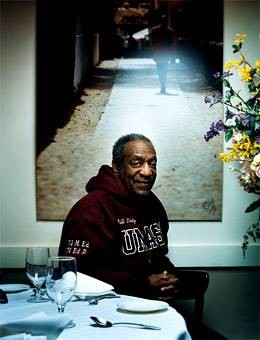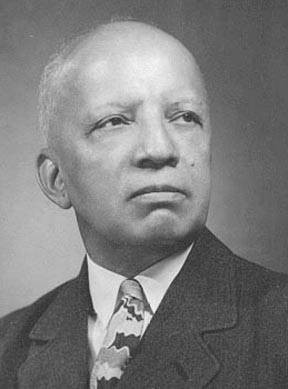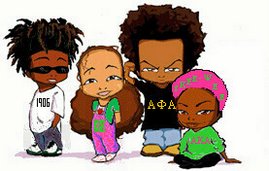And now we come to number one. Madam Secretary Dr. Condoleezza Rice. What can I say about her.
I think she's my new crush. This woman is a mutant. Enrolled in college by 15, a classically trained pianist, and she loves football. Now just imagine if she stopped playing classical music and started playing jazz.....
Recently Dick Morris thinks she should run in 2008 against Hillary. I say she should do it. Damnit I think she can change the world.
Cut that perm girl and grow some locks. Origin:
Origin: Born November 14, 1954 in Birmingham, Alabama, the only child of Angelena Rice and the Reverend John Wesley Rice, Jr. Her father became a minister at Westminster Presbyterian Church and her mother was a music teacher. She was born the same year as the landmark Brown v. Board of Education decision. Rice was eight when her schoolmate Denise McNair was killed in the bombing of the primarily African-American
Sixteenth Street Baptist Church by white supremacists on September 15, 1963. Rice states that growing up during segregation taught her determination against adversity, and the need to be "twice as good" as non-minorities. She earned her bachelor's degree in political science, cum laude and Phi Beta Kappa, from the University of Denver in 1974 (where she enrolled at the age of 15); her master's degree from the University of Notre Dame in 1975; and her Ph.D. from the Graduate School of International Studies at the University of Denver in 1981. While in Denver, Dr. Rice attended a course on international politics taught by Josef Korbel. The course sparked her interest in the Soviet Union and international relations, leading her to call Korbel "one of the most central figures in my life." Rice joined the faculty of Stanford University in 1981 and became a tenured professor of political science. At Stanford, she was a member of the Center for International Security and Arms Control, Senior Fellow of the Institute for International Studies and and between 1985 and 1986 a national fellow at the Hoover Institution. In 1986, while an international affairs fellow of the Council on Foreign Relations, Rice served as Special Assistant to the Director of the Joint Chiefs of Staff where she worked on nuclear strategic planning.
From 1989 through March 1991 (the period of the fall of Berlin wall and the final days of the Soviet Union), she served in the George Herbert Walker Bush Administration as Director, and then Senior Director, of Soviet and East European Affairs in the National Security Council, and as a Special Assistant to the President for National Security Affairs. In May 1991 she was named a director, of the Chevron Corporation.
In this position, she helped formulate the strategy of President Bush and Secretary James A. Baker III in favour of German reunificatiom. She so impressed President Bush that he introduced her to Mikhail Gorbachev as the one who "tells me everything I know about the Soviet Union."
After working for Bush senior she returned to Stanford in 1991. In 1993 she was appointed Stanford Provost, becoming the youngest person in the position as well as first woman and first non-white. She held the position until 1999. In 1999 she resigns her provostship at Stanford University to help with George HW Bush's campaign. In July of the same year she is appointed senior fellow, Hoover Institute. In January 2001 she resigned as a director of Chevron, and was appointed National Security Advisor for GW Bush.
First Appearance: While an international affairs fellow of the Council on Foreign Relations. Rice served as Special Assistant to the Director of the Joint Chiefs of Staff where she worked on nuclear strategic planning. (1986) When her fellowship ended she returned to Stanford.
Powers: She has the power to send young men and women off to their death. The Secretary serves as principal adviser to the President in the determination and execution of U.S. foreign policy and in recent decades has become responsible for overall direction, coordination, and supervision of interdepartmental activities of the U.S. Government overseas, except for certain military activities. She speaks speaks Russian, French, and Spanish also.
Rumor has it her pussy is made out of Kryptonite. Potential for Danger: She's
FOURTH IN LINE to succeed the Presidency. Meaning she's basically two bad plane crashes and a heart attack away from the Presidency of the United States. She is America's face overseas. In every US embassy of in the world there is a picture of the President and a picture of the Secretary of State. Imagine if she started giving GW Bush advice that would help black people and he listened. Imagine if she came up with a plan to get the continent of Africa out of debt.
And even more so than Oprah she can convince women that they can run the world. Now how scary is that.Weaknesses: Her
crush on GW Bush,
fibroids, and
football .
Group Affiliations: Former director of the Chevron Corporationthe Charles Schwab Corporation, the William and Flora Hewlett Foundation, the University of Notre Dame, the International Advisory Council of J.P. Morgan and the San Francisco Symphony Board of Governors. She was a Founding Board member of the Center for a New Generation, an educational support fund for schools in East Palo Alto and East Menlo Park, California and was Vice President of the Boys and Girls Club of the Peninsula . In addition, her past board service has encompassed such organizations as Transamerica Corporation, Hewlett Packard, the Carnegie Corporation, Carnegie Endowment for International Peace, The Rand Corporation, the National Council for Soviet and East European Studies, the Mid-Peninsula Urban Coalition and KQED, public broadcasting for San Francisco.












